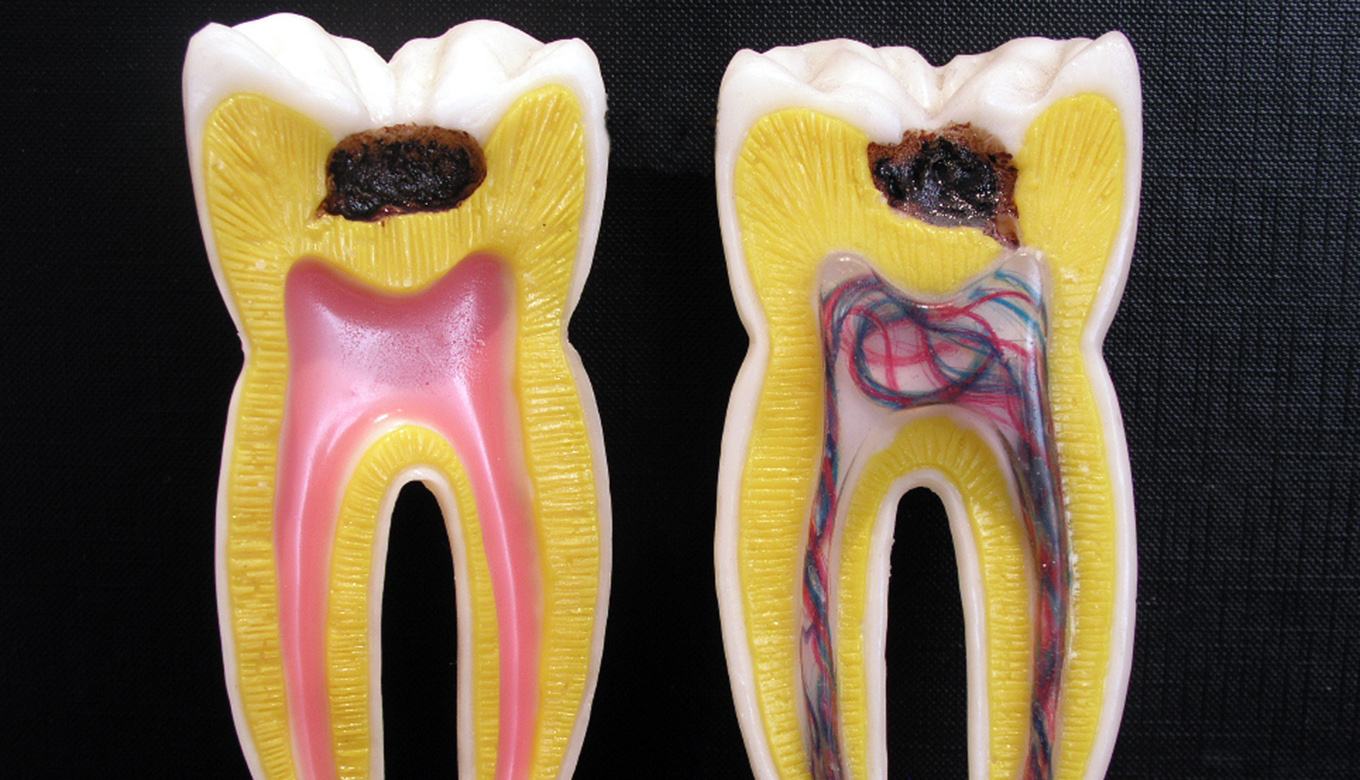What does everyone know about Root Canal Therapy?

Root Canal Treatment is needed to treat a decayed tooth if the infection is deep or the tooth is severely decayed. Unlike many people think, it is not a painful procedure. You can get both “Surgical Root Canal Therapy” and “Non-Surgical Root Canal Therapy” in a dental office but Dentists choose the right one depending on the severity of the infection in a tooth.
The non-surgical procedure is widely used by Dentists, It involves opening the infected tooth, extract the infected tissues. The surgical RCT will be preferred if the infected region cannot be obtained in X-rays. It involves an incision in the surrounding gum to remove the diseased tissues inside the tooth.
Remember that not all the decayed teeth require Endodontic treatments to repair. When does a tooth need RCT? How could you know that? The answer is given by our dental experts.
When does a decayed tooth want Root Canal Therapy (RCT)?
RCT is mandatory to preserve a diseased tooth when its nerves are infected.
Typically, a tooth has a hard outer covering called Enamel which is made up of minerals, water and other organic materials. This is the hardest substance in our body. Underneath the enamel, another layer called dentin is present which wraps the cementum and dental pulp. The dental pulp serves as the house for the tissues, blood vessels and nerves of the tooth. The pulp possesses a connective tissue that extends to the tooth root.
Dental caries begin its infection from the enamel and cause tooth decay. The untreated tooth decay begins to penetrate underneath the enamel. Now the interior areas of the teeth are vulnerable to infection. Then the infection reaches the pulp chamber and damages the tissues.
In such cases, the pressure you apply to the nerve region when you eat or bite a thing, it will cause intense pain.
Likewise, a strong chip or crack on a tooth may leave the tooth with exposing inner portions. The inner soft regions can be easily infected when they are visible. This also causes nerve damage inside a tooth.
How could you know that you may need RCT?
Pain and Sensitivity in a tooth are the common warning signal for most of the dental discomforts. In contrast, when a tooth nerve is infected, the pain is intense and will disturb you in your daily activities.
Here are the common signs and symptoms that alert a person needs Endodontic Treatment:
1) Persistent Pain
The pain caused due to infections in the pulp chamber varies from common toothache.
- It will and go at times. You feel intense pain in the morning when you awake.
- When you bite even a soft particle with the diseased tooth, the pain is unbearable.
- The pain radiates into ear and jaws.
2) Teeth Sensitivity
Teeth sensitivity is also possible with a tooth when it is infected. In case of mild infection, the infected tooth becomes sensitive to hot and cold substances. In contrast, the sensitivity is prolonged for a while even after the hot or cold substances are removed from a tooth which has infected nerves.
3) Dark Discoloration in the tooth
When the dental pulp is infected, the blood vessels present inside also gets affected. Then the tooth cannot get sufficient blood supply. It will trouble the tooth’s ability to remove stains itself. Thus the diseased tooth becomes discoloured and appears darker than the surrounding teeth.
4) Gum swelling
The gum regions around the infected tooth appear inflamed. Similarly, small pimples on those regions are also visible. Swelling and inflammation in the gum regions may arise due to various reasons. Hence it is better to consult with your Dentist if such gum inflammation exists for many days.
5) Swelling around the face
When a tooth is badly decayed or infected, swelling in the tooth side of the face or neck also occurs.
Conclusion
Beginning from dental caries, the progression of decay takes a while to develop and affect the interior areas of a tooth. If you ignore the decay even after noticed it, then you will end up in a Dentist chair to get RCT.
Taking care of your mouth with dental hygiene routine along with regular dental visits will help you to abolish serious dental infections in the budding stage.
Leave a Reply